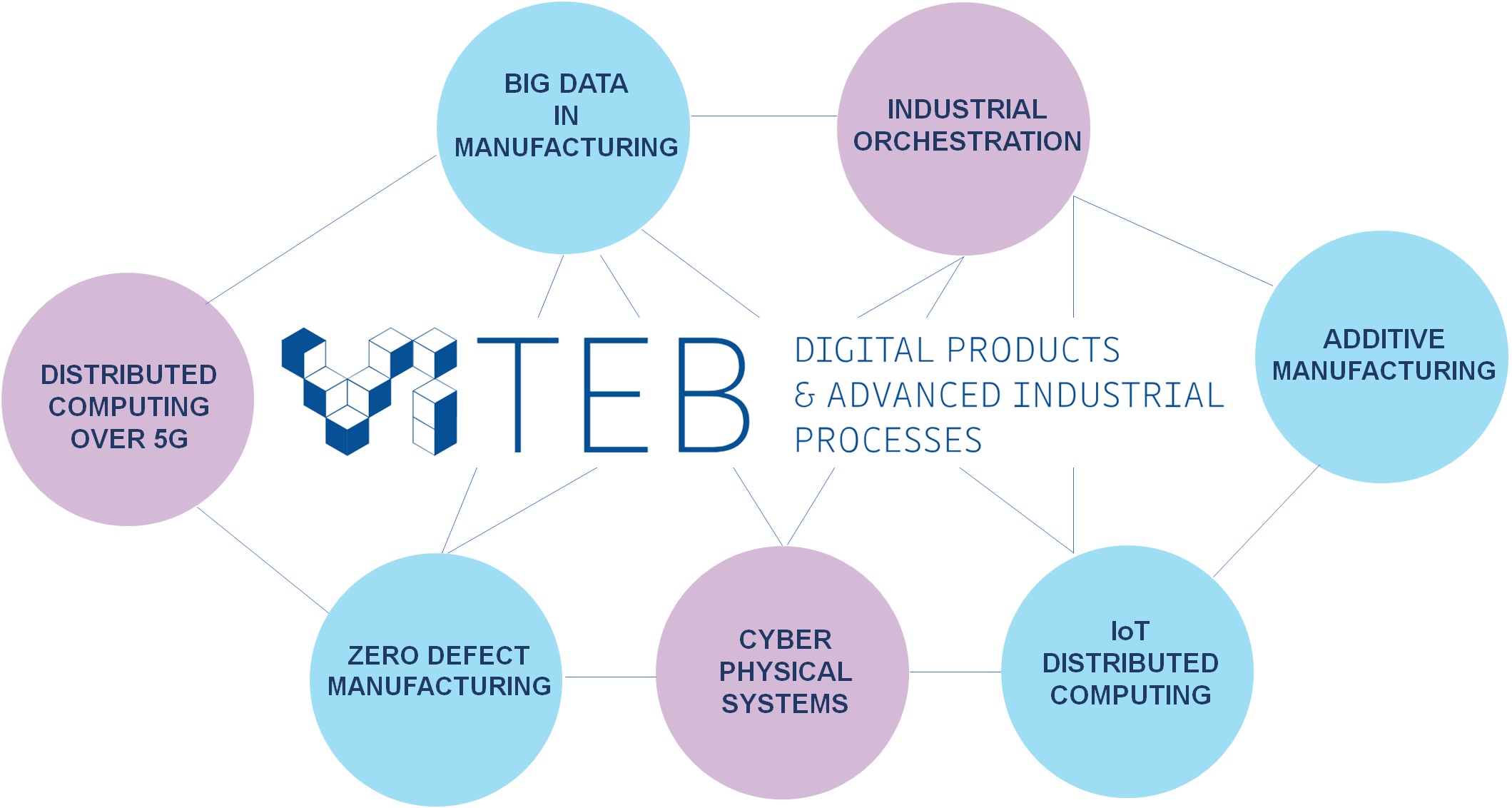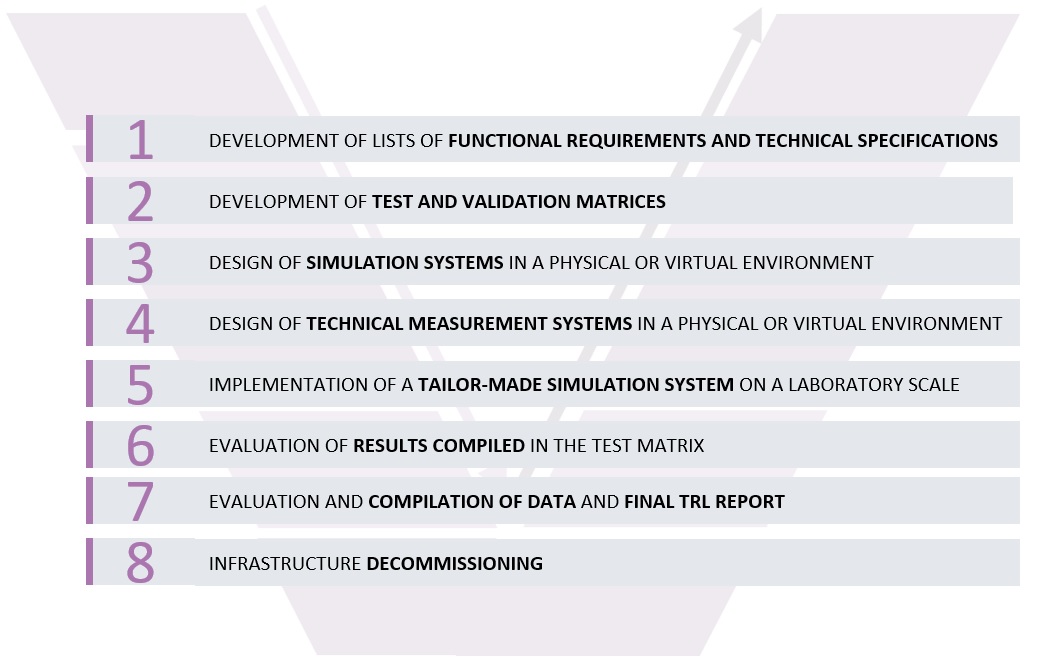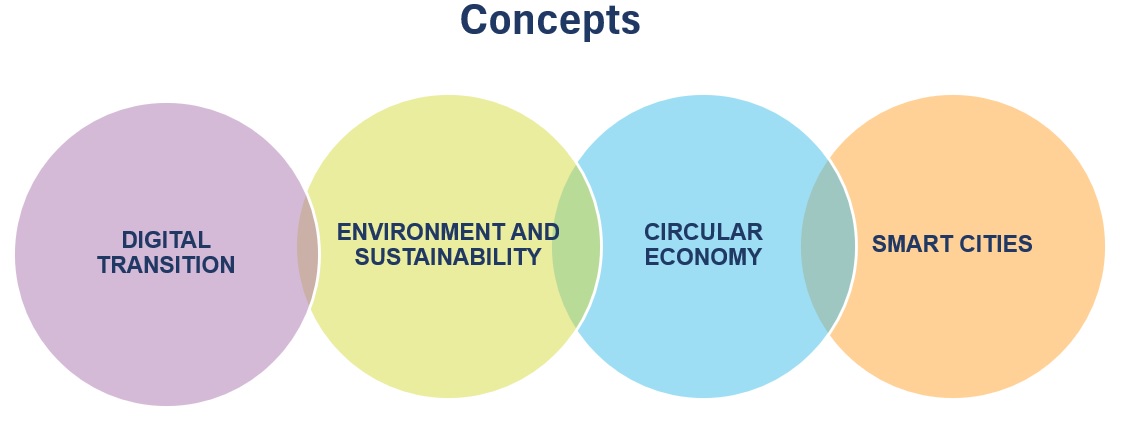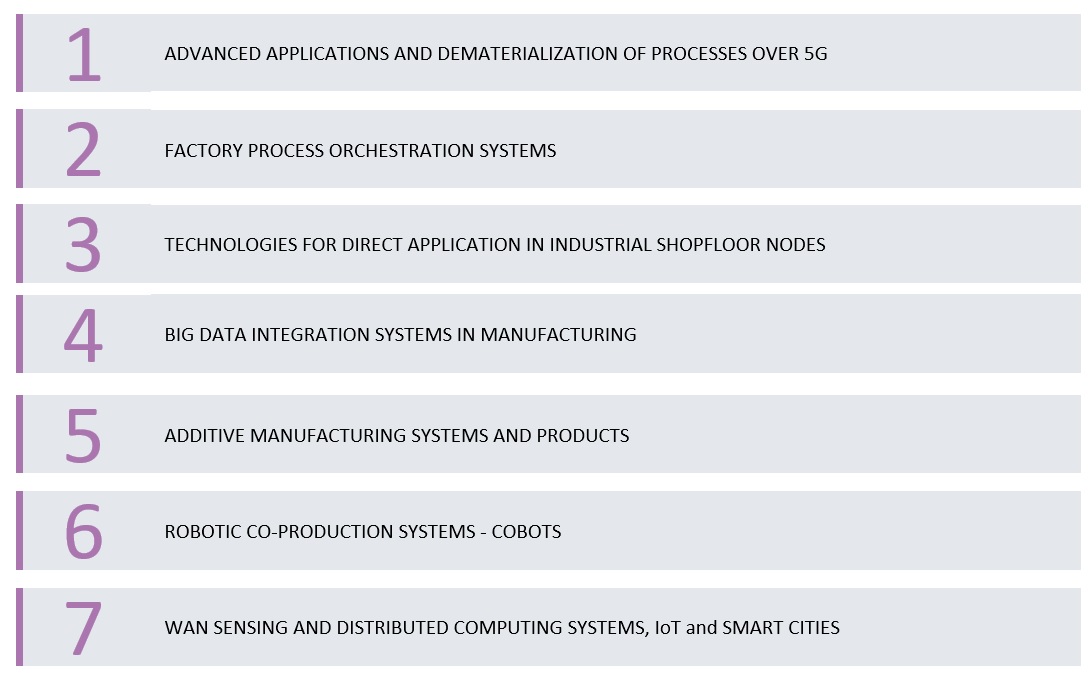The use cases for potential applications that SMEs and start-ups will have access to include a wide range of solutions.
These potential applications represent the main Key Enabling Technologies of the ViTEB Test Bed.
1. From the perspective of the new ubiquity of systems brought to the industry by 5G networks, facilitating the adoption of new industrial use cases, in the areas of remote operation and maintenance (AR/VR), co-operative production techniques with flexible cobots, mass adoption of continuous inspection techniques, adoption of E2E product traceability systems in production chains.
2. From the perspective of new systems for intelligent, real-time orchestration and optimisation of physical and digital business processes, applied to use cases which introduce ML systems for intelligent and active computing.
3. From the perspective of testing and validating new equipment for implementing flexible automation in evolutionary processes for the digital transition of industries, such as ZDM (zero defect manufacturing) and augmented reality (xR) systems in industrial maintenance.
4. From the perspective of testing and validating new systems for processing large volumes of data, characterised through the use of Volume, Veracity, Variability, Value and Speed indicators. With typical use cases in the areas of maintenance and predictive quality, in the manufacturing process, digital twins.
5. From the perspective of testing and validating new digital modelling and 3D printing manufacturing systems.
6. From the point of view of testing and validating new collaborative production systems in specific use cases, especially in terms of validating permissible loads, sensors and Cobot cameras in terms of functions to be carried out in a shopfloor environment for each specific workstation.
7. From the perspective of testing and validating new sensorisation and distributed computing systems, applied to municipal use cases for integrating systems into smart city platforms.










